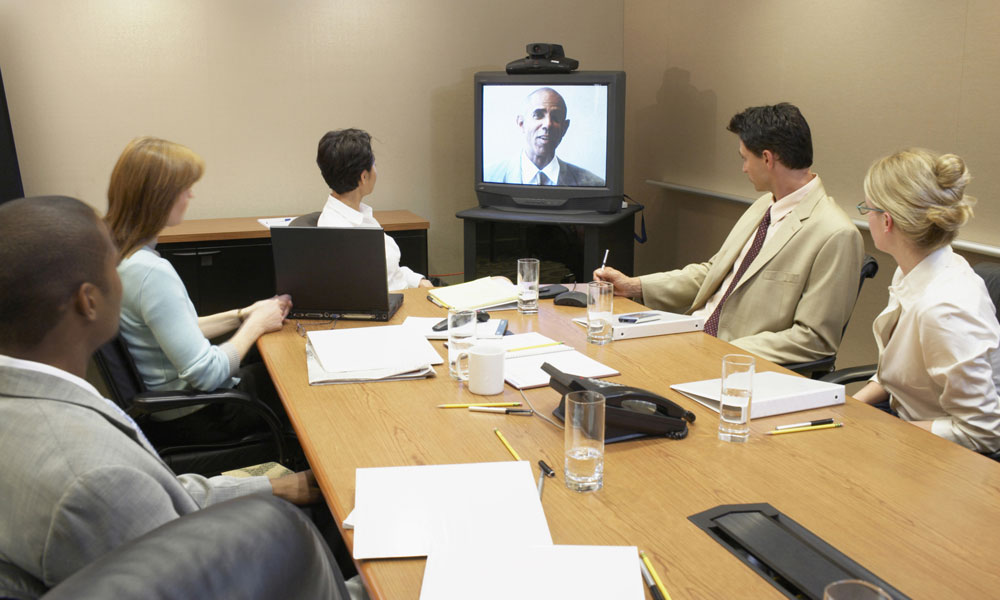
Proposed Bill Aims to Cut Federal Travel Expenses Via Videoconferencing
The newly introduced bill calls on the Office of Management and Budget to cut travel expenses by 50 percent by setting up a plan for federal employees to use more videoconferencing.
New legislation introduced in the House of Representatives earlier this month proposes to cut federal agencies’ travel expenses by increasing the use of videoconferencing.
The Stay in Place, Cut the Waste Act (H.R. 2643), sponsored by Rep. Michael Fitzpatrick (R-Pa.), calls on the Office of Management and Budget to create a plan to use videoconferencing in order to reduce travel expenses by 50 percent from 2013 levels, or by the greatest amount OMB finds feasible, by 2017, according to The Hill.
“Videoconferencing can be used by federal employees instead of or in addition to telephones and email to enhance communication and problem solving, to reduce associated carbon footprints, to facilitate staff training and interagency meetings, and to increase employee productivity, thereby helping shorten project timelines, promote efficiency, improve collaboration among coworkers across the country, and improve work-life balance,” the bill states [PDF].
The legislation comes after a string of reports of lavish conference spending by federal agencies, including an inspector general’s report that found the Internal Revenue Service spent roughly $50 million on 225 conferences in 2010.
Last year, OMB instructed all federal agencies to reduce their travel budgets by 30 percent from fiscal year 2010 levels.
Cosponsored by Reps. John Barrow (D-Ga.), Julia Brownley (D-Calif.), Mike Coffman (R-Colo.), Tim Griffin (R-Ark.), Jim Matheson (D-Utah), Glenn Thompson (R-Pa.) and Peter Welch (D-Vt.), the Stay in Place, Cut the Waste Act was included in a legislative package aimed at making the government more efficient and less wasteful, announced this week by the No Labels coalition of lawmakers.
The “Make Government Work!” package includes nine bills addressing issues such as energy savings in federal buildings, consolidating electronic health records of veterans, and establishing a two-year budgeting cycle for the U.S. government.
(Purestock/Thinkstock)






Comments